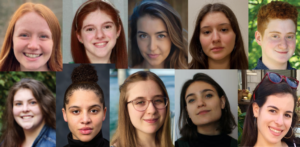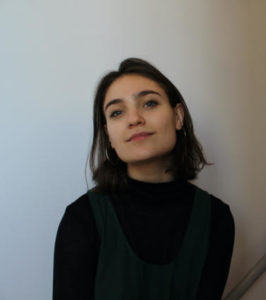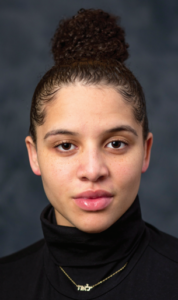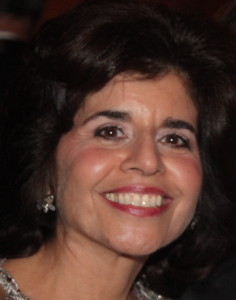Tag : college
January 26, 2021 by admin
“Dr. Jill Biden Earned Her Title.”
Wall Street Journal writer Joseph Epstein’s condescending attempt to convince Dr. Jill Biden to drop the Dr. in favor the “Mrs.” which he opens by saying “Madame First Lady—Mrs. Biden—Jill—kiddo,” is actually an attempt to belittle her. And to belittle all women who have the audacity to display their legitimate credentials, which, once again, they have earned.
The message is clear: her identity doesn’t matter. Her achievements are irrelevant. Her intellect is offensive. She—and all women—should stay in our lane, which is to be happy assuming the title of wives to our husbands.
The most enraging part of this rant is his attack not just on academia itself, but on Dr. Biden’s actual research. Her dissertation explores ways to retain community college students. Epstein
dismisses this as “not promising.” It is not just promising but vital. Dr. Biden’s research is deeply worthy, highly relevant, and vital to the future of our nation. Epstein’s dismissal of community college students and indeed community college professors, of which Dr. Biden is a proud example, reveals an elitist, classist, and myopic view of the nature of education and
its value. So who the hell is he—with his honorary doctorate and his BA—to dismiss it? Who the hell is he to claim expertise on anything to do with her research at all? I know he is a man, but Dr. Biden is a doctor of education. Trust me, on this (and many other things), she knows more.
The pandemic has taken a deep toll on everyone; female academics have been particularly hard-hit compared to their male counterparts. We also understand what motivates Epstein’s article, and it’s not a concern that someone will mistakenly turn to Dr. Biden in a medical emergency. Epstein proudly rejects a title he did not earn, even as he resents the conferral of honorary degrees on, in particular, Black women. Every woman who has ever earned a doctorate and been asked for coffee or directions to the professor’s office has met a man like Epstein. But, with one of the most visible women in the country proudly using her title and inspiring so many other women to insist on theirs, perhaps our chorus can cause him and others like him, including the WSJ editors who continue to support the article, to just for once shut the hell up and listen to the experts: the women with doctorates like me and Dr. Jill Biden.
—
SHARRONA PEARL, The Lilith Blog, December, 2020.
- No Comments
January 25, 2021 by admin
Is Gen-Z Alright?
Ten feminists, ages 18 to 27 squint at the future imperfect through a coming-out journal, religious faith, long-distance love, an opera career on pause, working retail to survive, and more.

From top left: Chaya Holch, Tziporah Herzfeld, Ilana Starr, Rachel Fadem, Rena Yehuda Newman, Kira Yates, Makeda Zabot-Hall, Abigail Fisher, Noa Wollstein, Arielle Silver-Willner
- No Comments
January 25, 2021 by admin
A College Senior During Covid Waits for the ‘After’

NOA WOLLSTEIN, 21
I left college as a second-semester junior, not knowing if I was coming back. While the class of 2020 was pitied for losing their graduation and final moments with friends, I envied them their near-complete four years at school. My senior fall has since gone online, and there’s no indication of a different fate for the spring.
Sitting alone in a house in Long Island, as my family members returned to in-person work, I’ve struggled to adjust to the new normal. I’ve been told to think of the future, when the pandemic inevitably ends and life, in one form or another, continues. The problem is that I have no idea how to look ahead. My classmates and I are back to living like high schoolers, but with thesis deadlines.
The road of school and education—from primary to middle to high to higher—that I’ve been on for so long is coming to an end. The big unknown beyond May was always supposed to be scary, a haze with the words “the rest of your life” floating in it. Still, I had bargained on having a framework for these last months before I enter “the real world.” It’s an interval of time short enough to make me panic-scroll through job listings, but long enough to stop me from actually applying to any of them.
I can’t visualize a future where I still study beneath stained glass library windows, go to rehearsals for my dance company, or live within walking distance of all my friends. And while I know (or hope) new joys will fill the life I build for myself after graduation this spring, how can I predict what they’ll be? How do I see the little moments that make living sweet, when I don’t know what I’ll be doing or where I’ll be living? Who even knows if I—or anyone else in my class—will have a job?
When school shut down in March and my dad drove me home a few days later, it felt dramatic to think of the moment I left campus as the end of life as I knew it. Yet in a sense it was: more than seven months later, I’m still waiting in limbo, holding my breath until I find solid ground again.
By now I imagined that I’d be getting through this year by embracing the unknown. As that moment of enlightenment has yet to arrive, so for now my solution is a little less ambitious. I’m focusing on midterms, taking up embroidery, and trying to take the day one hour at a time. Eventually, piece by piece, that will bring me to the future.
- No Comments
January 19, 2021 by admin
Freshman Year in a Pandemic

MAKEDA ZABOT-HALL, 18
My freshman year of college probably looks quite different from yours. I have to wear a mask while I use the bathroom. I’ve never seen the mouths of the people who serve me lunch every day. And my friends and I yearn to see invitations to events in our inboxes, that—just this once—won’t include a Zoom link, but instead will have a physical address, like the flyers that used to hang on the light posts where I grew up.
We often get asked if we feel like we’re missing out on the true experience of our first year in college. How can you miss something you’ve never experienced before? We only know college with Covid, so we’ve adapted—and learned how to find joy even if we can’t see each other smile. We still gathered to watch the debates and comment on the white men who express stronger enthusiasm for limiting reproductive choice then they do about disavowing white supremacy. We still argue and form relationships, some intimate and some not. And although we can’t gather in large groups, we still find ways to laugh over Zoom.
I’m glad to be here. I never got my ending of high school, or the chance to hug my best friend before I left for college. I spent a lot of the summer in my room, alone and unable to understand why I wished for the days to end as soon as they started. It wasn’t just the pandemic. Each day brought with it a new reason for why my brother sat at the diner table, anxious, or why my throat swelled up every time my parents asked if I was okay, or if I wanted to unpack the violent death of another human being whose name I couldn’t remember. Activists say “say their names,” but my mind shut down because I didn’t want to fathom the idea that this list of Black people cut down by the police would keep growing.
In the blur of the summer, these are the parts I remember. And then August 20th came, and my grandmother waved goodbye as I sat in the back seat of our rented car, and I prayed that God would keep her safe from those things that made my throat swell.
As my first few weeks on campus flew by, I finally understood what my mom had been telling me, and what her father had told her before she left for college: when children leave their home, they no longer see their parents as superheroes, but instead as people who make mistakes. I didn’t talk to my parents a lot my first few weeks on campus. I was bathing in the freedom, and I knew as soon as I picked up that phone I would be flipping the pages back to the previous chapter of my life. I missed my parents terribly, but I was determined to thrive in this new environment, and learn how to navigate this next chapter of my life that existed within a world that was falling apart.
The night of Yom Kippur, instead of attending the Kol Nidre service, I joined the circle on campus gathered together for a vigil that mourned the loss of Breonna Taylor. I listened as many young Black women spoke out about injustices they’ve faced and still face on campus. I watched tears stream down the faces of the very Black women that get up every day and fight for themselves, for their right to live and breathe.
Now, I keep replaying the vigil in my head. This Yom Kippur was different. I didn’t rid myself of my sins, because I still carry the guilt and pain of having not been able to fight hard enough for the names of the Black and brown beings who deserved so much more. But that’s okay. Because I also carry the names that shouldn’t and won’t be forgotten.
Makeda Zabot-Hall is a former JGirls editor, now a freshman at Brandeis and a Lilith blogger.
- No Comments
August 24, 2020 by Sharrona Pearl
A Muslim Protagonist’s Angst: Jews Will Relate
Ramy is a show about faith, Millennials, New Jersey, friendship, and porn. It’s a show about searching for purpose, identity, and community even as your identity is assigned to you by outsiders, your community may not be a fit for you, and your purpose is constrained by navigating between those two extremes.
It’s hard to be Muslim-American. It got harder on September 11, 2001, the show reminds us, but it was never easy. It’s hard to be a Millenial who cares about faith but who also cares about being in your 20s, and Having Experiences.
- No Comments
June 25, 2014 by Esther Amini
When Her Persian Father Wouldn’t Let Her Go to College…

Esther Amini (courtesy author)
Rabbi Sholem Cohen, the new Sephardi Chief Rabbi of Israel and successor to Rabbi Ovadia Yosef, has just released his first ruling.
The verdict? “Women’s participation in academic pursuits, including in haredi colleges, is a violation of Jewish law,” Cohen wrote. Apparently, even in ultra-Orthodox educational institutions, women put their “pure” mindset at risk by coming into contact with potentially college-educated instructors.
Esther Amini, a writer and psychotherapist, shared her own experience being discouraged from higher education as a young woman in a piece that will be featured in Lilith’s Summer issue. Amini’s courageous pursuit of an education has paid off in spades, as her writing has been featured in publications from Elle to Tablet Magazine.
Under the Sheets
Every night, after house patrol, Pop marched into my room shouting, “Enough books!” and flicked off my lights before slamming the door. He thought that by turning off lights he was turning me off, ridding me of curiosity and saving me from what would become a home-wrecking narcotic: books.
But by age 13, I was already a pro at reading with my head tucked under the sheets. I’d reach for my flashlight, dive head-first under the covers, and read voraciously. Beneath layers of bedding, with labored breathing, I silently turned pages. My squinting eyes, acclimating to the circle of light on each page, devoured the words. Eventually I’d re-surface for a deep inhale and then slide back down.
- 10 Comments
 Please wait...
Please wait...